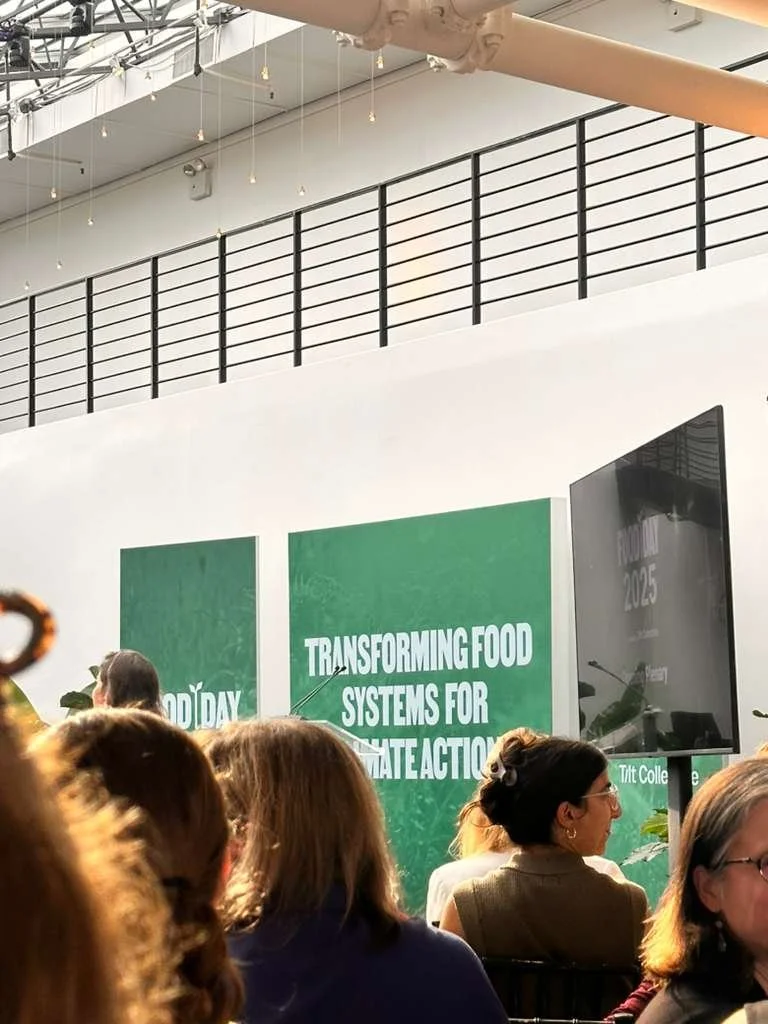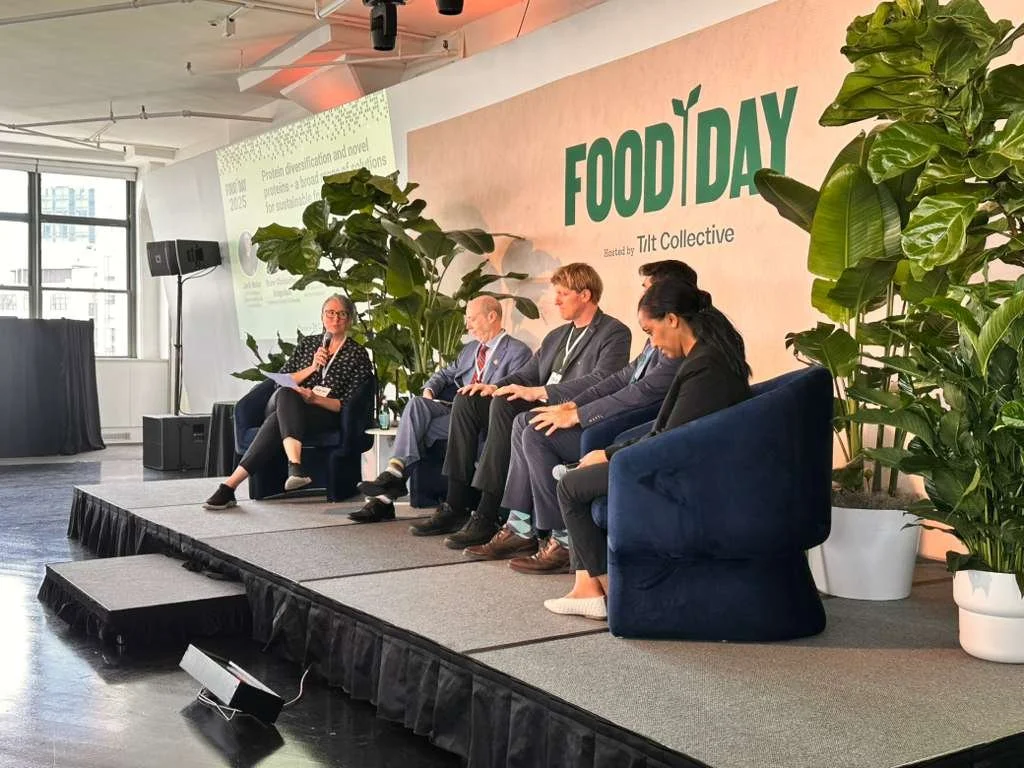Reflections on Climate Week NYC 2025: Food at the Center of Climate Solutions
Food Systems for the Future (FSF) Institute joined global leaders, innovators, and changemakers in New York City for Climate Week 2025, where food’s role as both a driver of, and solution to, climate change took center stage. Across packed sessions and dynamic side events, one message resonated: tackling the climate crisis is inseparable from transforming food systems and safeguarding human health.
Why Food, Why Now?
At the Food Day from Tilt Collective opening session, Why Food, Why Now?, speakers underscored the need for a systems approach. Food is not an isolated sector; it intersects with public health, agricultural production, nutrition, and climate resilience. Speakers explored how to bring more finance into food systems, stressing that philanthropy alone cannot meet the challenge. Key imperatives included:
Proving interdependence: Demonstrating how food and climate are inseparable to shift mindsets and mobilize action.
Blending finance flows: Aligning private investment, public funding, and development aid to cover the entire value chain, from upstream production to downstream markets.
Building frameworks and KPIs: Creating the infrastructure, metrics, and incentives to socialize risk and attract long-term capital.
The consensus: to scale climate-smart, nutrition-positive solutions, the world must leverage all forms of capital, philanthropic, public, and private, and do so with urgency.
Diversifying Proteins, Expanding Choices
Another recurring theme was protein diversification and novel proteins as pathways to sustainable diets. Speakers called for research where it is most needed, leveraging AI, circular economy principles, and climate-resilient production to bring affordable proteins to scale.
Just as important was changing the narrative. Rather than polarizing debates about diet, participants urged constructive conversations that respect identity and culture. After all, most consumers don’t eat to save the planet; they eat for taste, cost, and convenience. Solutions must meet people where they are.
Around this topic, FSF will convene the session Rewriting the Protein Narrative: Truth, Trust, and Sustainable Solutions at the 2025 World Food Prize Borlaug Dialogue.
Technology, Logistics, and Human Dignity
At Food Tank’s gathering, featuring the work of the World Food Prize Foundation, discussions centered on food security and the power of technology. AI’s ability to merge data, forecast shocks, and derisk investments was highlighted, alongside inspiring logistics partnerships like UPS and WFP delivering food to hard-to-reach places.
Panelists reminded us that the world produces enough food to feed everyone, yet hunger persists because of conflict, inequity, and broken supply chains. As one speaker put it, “Hunger is a logistics problem.”
A Call to Action: From Hope to Scale
Climate Week conversations made clear that hope is still operational, but action must accelerate. Participants challenged governments, businesses, and civil society to:
Move cash before disaster, scaling safety nets in advance of crises.
Test solutions for speed and scalability, bringing pilots to market faster.
Forge public–private partnerships that align incentives and share risk.
Mobilize resources globally, not only within the U.S.
The connection between conflict and hunger was never far from view. Food insecurity can destabilize communities, making the case for strong food policy at home and abroad that affirms the fundamental right to affordable, nutritious food.
FSF’s Takeaway
For FSF, Climate Week was more than a series of meetings, it was an immersive learning journey. We engaged directly with innovators, private and public sector leaders, and fellow advocates who are reshaping how the world thinks about food and climate.
The week reinforced our conviction that transforming food systems is one of the most powerful levers for climate action and human well-being. It requires shifting narratives, constructing bigger bridges between stakeholders, and ensuring finance flows across the value chain, from farm to fork.
FSF will carry these insights forward as we continue to connect capital, innovation, and policy to accelerate progress toward a nutritious, equitable, and climate-resilient future.
Stay tuned for more updates and opportunities to collaborate as FSF turns these Climate Week insights into action.




